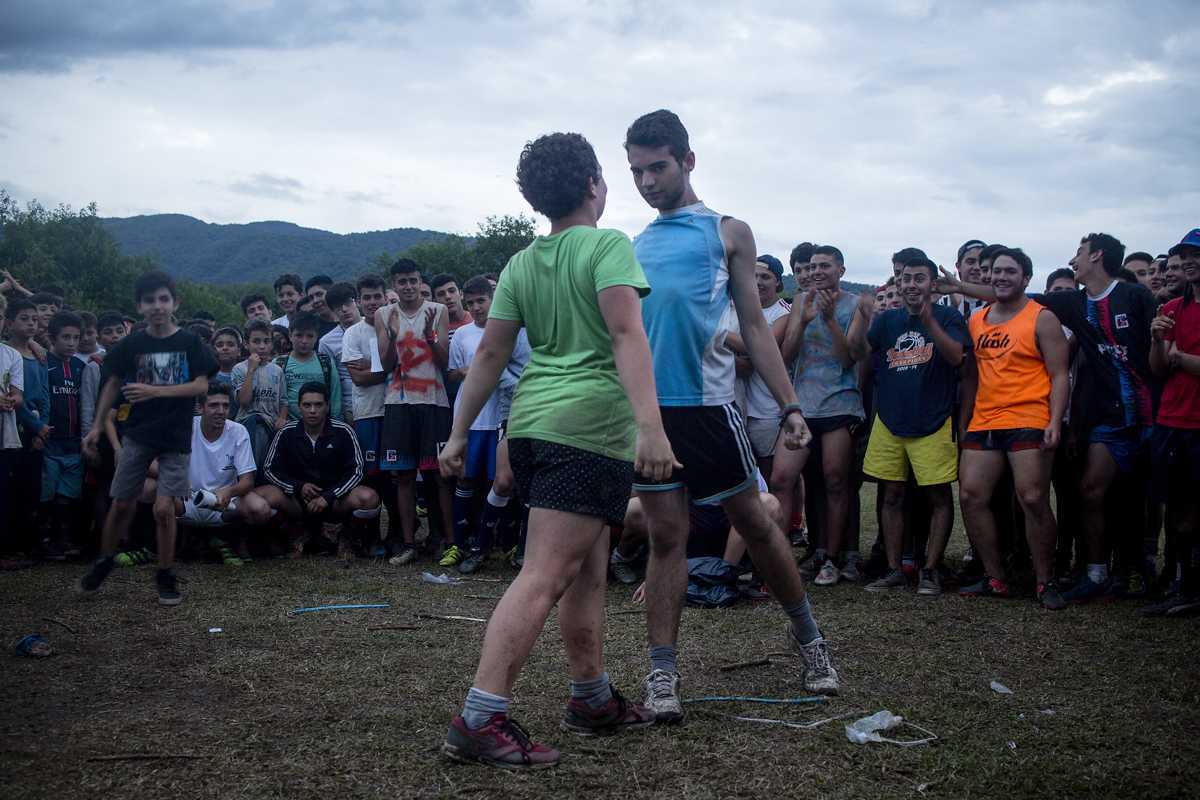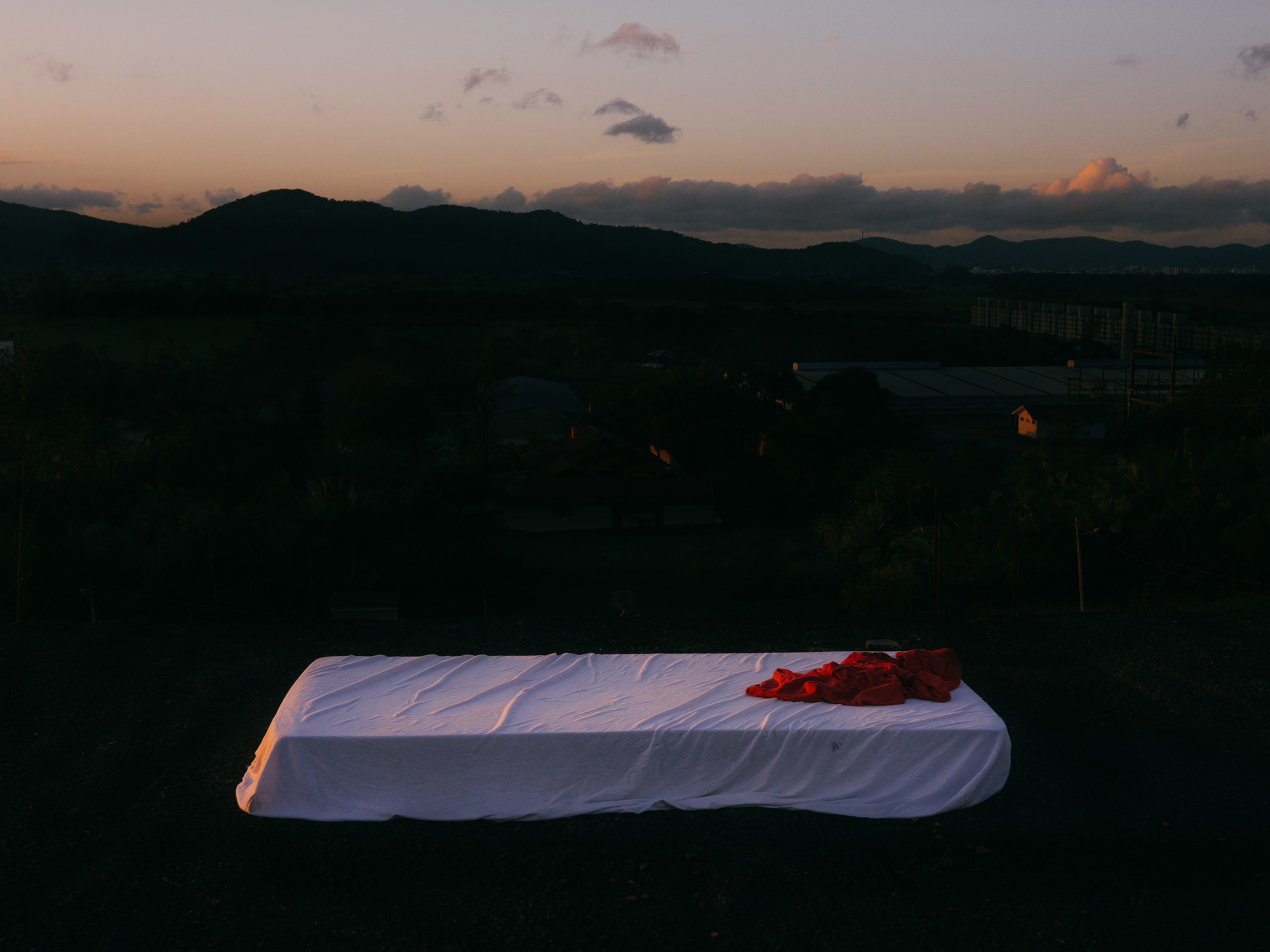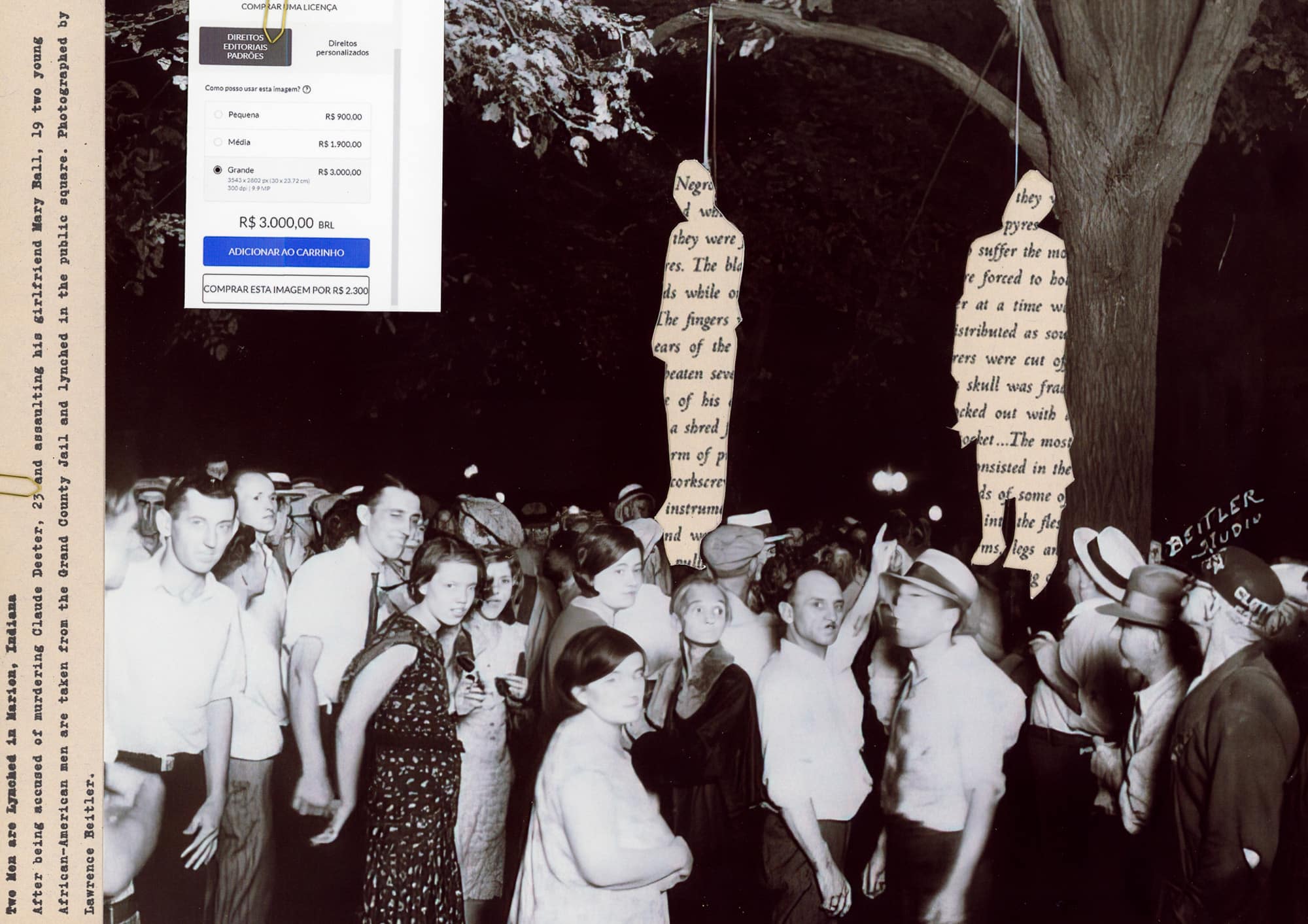
Masculum Gymnasium: Boys’ Last Ritual
What happens when 500 students, all boys, gather in a forest with no adults to watch over them? Nicolás Pousthomis visited the camp of the only boys-only school in Argentina. Through his photos, he makes us question specific closed ideas about masculinity.
By Marcela Vallejo
Tucumán is the only province in Argentina with no sex education in schools nor access to contraceptives in health centers or hospitals. It is the province that declared itself “pro-life” and where a doctor performed a cesarean section on an eleven-year-old girl to force her to have the baby of the man who raped her.
In the feminist tide, Nicolás Pousthomis, from Sub Cooperativa, chose this place to think about his country’s transformation. A conflictive place where there is what was, until 2021, the only school exclusively for boys in Argentina: the Gymnasium. A camp was held there annually, attended by 500 students, and gathered for ten days, with no adults to watch over them.
Pousthomis’ project is the record of the 2017 camp. Isolated, the kids stayed in a space without bathrooms, electricity, or contact with their families. Everything that happened there was secret: one that has been going on for half a century.

Gymnasts have a peculiar way of showing admiration and affection: it starts with a slap, followed by a caress or a blow. When the “appreciation” is great, it can include violence and humiliation. The most “appreciated” of each shift are kidnapped by the older ones, taken to a redoubt in the middle of the forest, and subjected to various physical and psychological tests that are difficult to endure and will leave marks on the body until the end of the camp. The “intensity of the performance” is controlled by Zorro himself. Always hidden in a black suit, similar to one of the Ku Klux Klan, this character participates in the baptism with punches, cuts, and graffiti.


“They call them macho, misogynist, retrograde, premature ejaculators, fascist… Tucuman society looks at them with prejudice, but they don’t seem to care,” says Pousthomis about this work. “The pride of being from Gymnasium elevates the boy first, the adolescent later, the man and the old man than to the rank of a chosen one. They also criticize them for their airs of superiority. It is as if they were asking themselves: who wouldn’t want to have a son, a boyfriend, or a son-in-law from Gymnasium? A very closed concept of what it means to be a man”.



